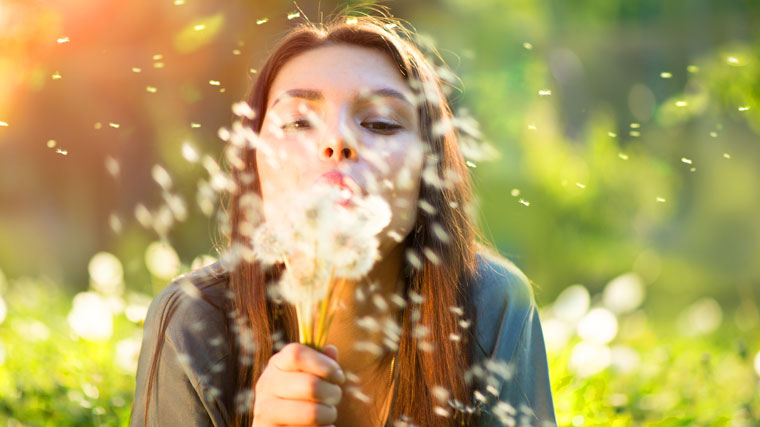Spring Can Bring Sneezes, Wheezes for Allergy Sufferers

Answer a few questions and we'll provide you with a list of primary care providers that best fit your needs.
You know you suffer from spring allergies when you prefer a long, hard winter over seeing the seasons start to change.
More than 50 million Americans are hit with seasonal allergies, especially in the spring, according to the American College of Allergy, Asthma & Immunology.
“When a person has seasonal allergies, their immune response system will act as if the substance is harmful to the body, and it initiates a reaction against inhaled allergens,” says Quratulain Aziz, MD. “And, that causes symptoms, basically the mucosal inflammation of your eyes and nose and throat.”
In other words, your allergies can turn you into a sneezing, runny-nosed, itchy-eyed, wheezy mess.
Finding Your Allergens
Whether you first developed seasonal allergies as a kid or they didn’t hit you until later in life, it’s likely they’ll change to get either worse or better over time.
Springtime allergies usually start in March as some trees start shedding pollen. Throughout the year different types of plants, grass, and trees create pollen and different allergens. For example, some of the most common fall allergens are mold, dust mites, and ragweed pollen.
You can be tested to find out exactly which allergens are affecting you. Though blood testing is one option, the best test is a skin prick test, says Dr. Aziz. Your primary care provider will refer you to an allergist who can do your testing.
“In a very controlled environment, they put the different allergens on the patient’s skin and make the small pricks so that the blood has contacted the allergen,” she says. “So, if you are allergic – if the patient’s immune response initiates against the allergen – they will see red and bumpy skin flare up near that allergen prick.”
Treating Seasonal Allergies
Once you know what you’re allergic to, your provider can recommend a treatment plan.
Dr. Aziz recommends taking preventive steps first. For example, when you know the pollen will be high, avoid going outside as much as possible and keep your windows closed. If you do go outside, change your clothes when you come back inside. Also, make sure to wash your face, hands, and hair to help clean off the pollen.
Next, she suggests using a nasal rinse to get the pollen out of your nose so it stops affecting you. You can also use an over-the-counter or prescription nasal spray.
Steroid nasal sprays reduce the inflammation in your nose and can help with congestion and post nasal drip.
Antihistamine medications – such as Claritin and Allegra – can also help ease congestion. They also can help with runny, itchy eyes.
Allergy shots are another option. These shots are tailored with the specific allergens causing your problem. A tiny amount of each of your seasonal allergens is put into the mix, and you’ll have a schedule for when to get the shots. At first, you’ll get them frequently.
As time goes on, the concentration in the shot will get stronger, but you’ll need to get the shots less often. The goal is that your body will build an immunity to the allergens over time, and eventually you won’t need the shots because the allergens won’t bother you anymore.
Keeping track of when your allergies start to act up can also help your provider decide when to start your treatment.
To learn more about seasonal allergies, talk to your doctor or health care provider or search for a provider.
Answer a few questions and we'll provide you with a list of primary care providers that best fit your needs.
Source: American College of Allergy, Asthma & Immunology; Quratulain Aziz, MD; Premier Health Primary Care - Beavercreek





